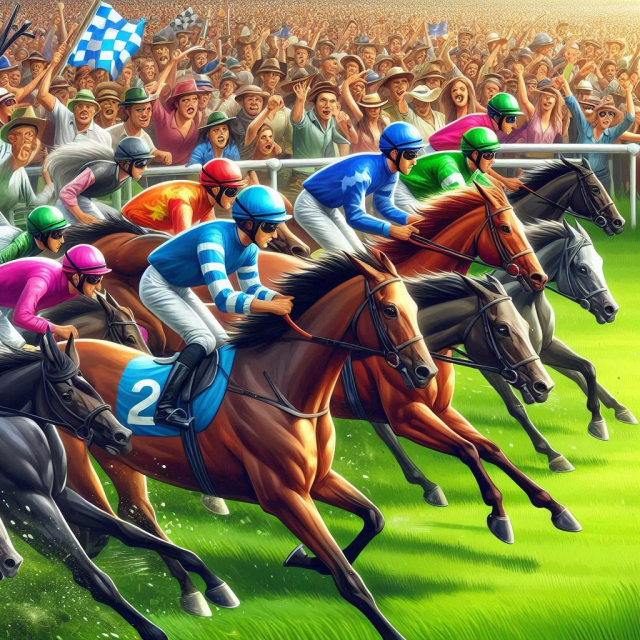Sports that use animals have been part of human culture for centuries. From horse racing to bullfighting, these sports have evolved, sparking both admiration and controversy. While some see in them a tradition and an expression of skills, others criticize the use of animals for ethical and welfare reasons. In this article, we will explore various sports involving animals, their history, current practices, and the controversies surrounding them.
History of Sports with Animals.
The use of animals in sports dates back to ancient times. The ancient Greeks and Romans already organized horse and chariot races, and hunting shows in amphitheaters. In the Middle Ages, jousts and tournaments included horses trained for war. In various cultures, animals have been used in competitions that test not only human skill, but also the abilities of the animals themselves.
Types of Sports that Use Animals.
Horse races.
History and Practices.
Horse racing is one of the oldest and most popular animal sports. Originating in ancient Greece and Rome, these races have become major events in many countries, including the United Kingdom, the United States and Australia. There are different types of races, such as thoroughbred, trot and harness.
Controversies.
Despite its popularity, horse racing has come under criticism due to training conditions and injuries suffered by horses. The use of performance-enhancing drugs and the culling of injured horses are practices that have generated intense debate about animal welfare.
Bullfights.
History and Practices.
Bullfighting is a deeply rooted tradition in countries such as Spain, Mexico and Portugal. Dating back to the Middle Ages, this spectacle involves bullfighters facing bulls in an arena, using capes and swords to perform a series of artistic moves and ultimately killing the bull.
Controversies.
Bullfighting is highly controversial due to the suffering the bulls experience. Proponents argue that it is a cultural tradition and art, while opponents consider it an unacceptable form of animal cruelty. In many places, bullfighting has been banned or restricted due to animal welfare concerns.
Sport hunting.
History and Practices.
Sport hunting has been practiced since prehistoric times, initially as a necessity for survival. Over time, it became a sport, especially among the European nobility. Today, sport hunting is carried out all over the world, with specific species and regulated hunting seasons.
Controversies.
Sport hunting is another controversial topic. Proponents argue it's a way to control the animal population and that fees paid by hunters help fund conservation. However, critics argue that hunting for fun is immoral and can lead to the extinction of endangered species.
Rodeo.
History and Practices.
Rodeo is a sport that has its roots in the skills of cowboys of the American Old West and Mexican charros. It includes events such as bull riding, barrel racing and calf roping.
Controversies.
Rodeo has been criticized for practices involving animals, such as the use of spurs and leashes that can cause pain and stress. Proponents of rodeo maintain that it is an important cultural tradition and that modern regulations help minimize animal suffering.
Pole.
History and Practices.
Polo is a sport that originated in Persia more than 2,000 years ago and is played on horseback. It is popular in countries like Argentina, the United Kingdom, and the United States. Players ride trained horses and use a mallet to hit a ball and score goals.
Controversies.
Although polo is seen as an elite sport, it has been criticized for the physical demands placed on horses. Injuries and burnout are common concerns. Trainers and players maintain that the horses receive the best possible care, although criticism persists.
Sled Dogs.
History and Practices.
Sled dog races, like the famous Iditarod in Alaska, have their roots in the transportation and hunting practices of indigenous Arctic cultures. In these competitions, teams of dogs pull a sled over long distances over snowy terrain.
Controversies.
Sled dog racing has come under fire due to the stress and extreme conditions the dogs are subjected to. Proponents argue that the dogs are well trained and cared for, while critics point to cases of mistreatment and deaths of dogs during races.
Impact and Regulations.
Animal welfare.
Growing concerns about animal welfare have led to the implementation of stricter regulations in many sports that use animals. These include a ban on certain training methods, better living conditions for animals and the presence of veterinarians during competitions.
Legislation.
Many countries have adopted laws to protect animals in sport. For example, some regions have banned bullfighting and others have imposed severe restrictions on hunting. International organizations have also intervened to establish standards to ensure the ethical treatment of animals in sporting competitions.
Ethical Alternatives.
In response to criticism, more ethical alternatives to some traditional sports have emerged. For example, animal-free rodeos use mechanical mechanisms to replicate traditional events without causing harm to the animals. Drone and robot racing is also gaining popularity as alternatives to animal racing.
Sports that use animals are a complex and often controversial part of human culture. While some people see them as a valuable tradition and a demonstration of skill, others criticize them for the suffering they can cause to animals. As our awareness of animal welfare grows, we are likely to see continued changes in the way these sports are practiced and regulated. The key is finding a balance between respecting traditions and ensuring that animals are treated with the respect and dignity they deserve.
